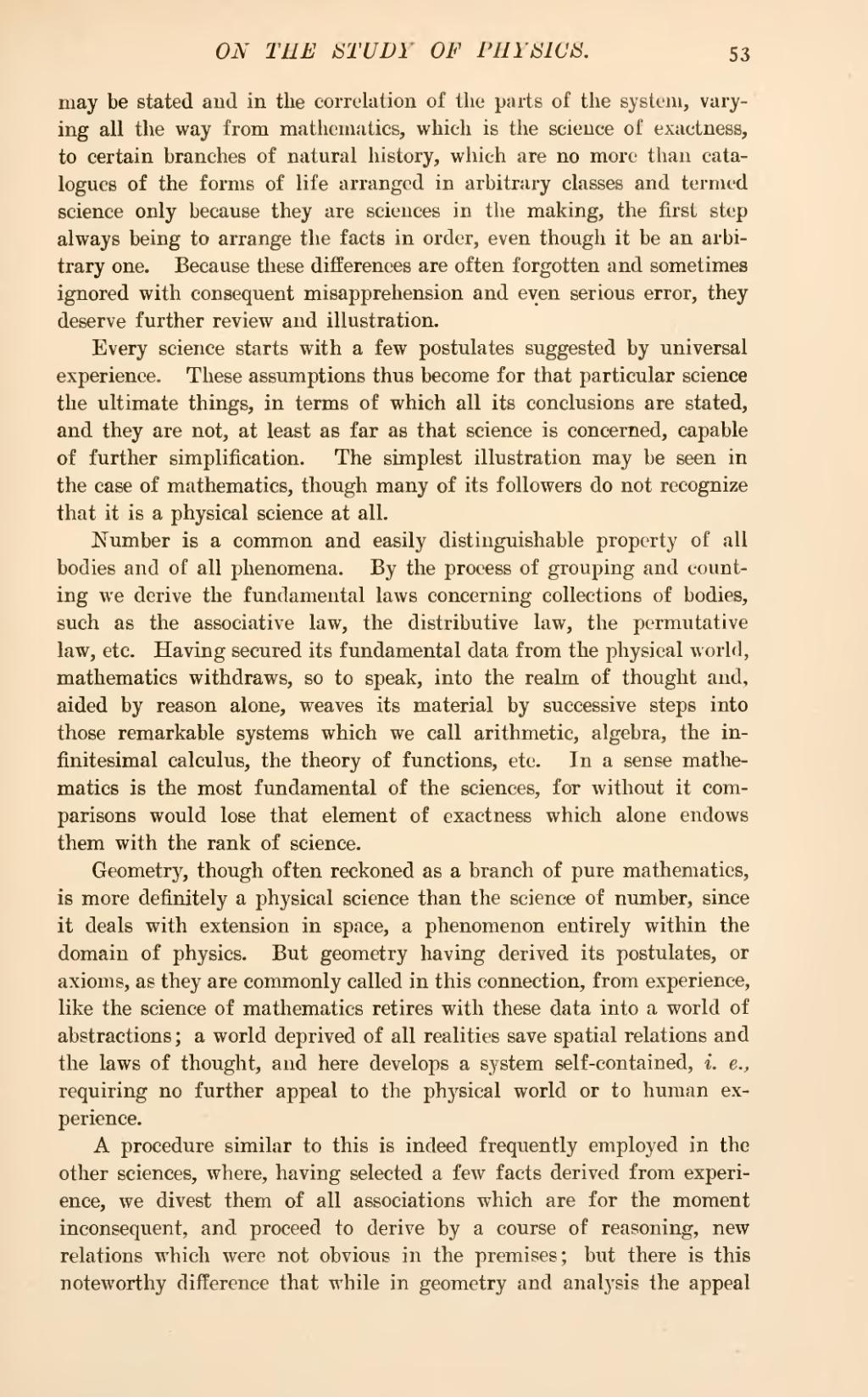may be stated and in the correlation of the parts of the system, varying all the way from mathematics, which is the science of exactness, to certain branches of natural history, which are no more than catalogues of the forms of life arranged in arbitrary classes and termed science only because they are sciences in the making, the first step always being to arrange the facts in order, even though it be an arbitrary one. Because these differences are often forgotten and sometimes ignored with consequent misapprehension and even serious error, they deserve further review and illustration.
Every science starts with a few postulates suggested by universal experience. These assumptions thus become for that particular science the ultimate things, in terms of which all its conclusions are stated, and they are not, at least as far as that science is concerned, capable of further simplification. The simplest illustration may be seen in the case of mathematics, though many of its followers do not recognize that it is a physical science at all.
Number is a common and easily distinguishable property of all bodies and of all phenomena. By the process of grouping and counting we derive the fundamental laws concerning collections of bodies, such as the associative law, the distributive law, the permutative law, etc. Having secured its fundamental data from the physical world, mathematics withdraws, so to speak, into the realm of thought and, aided by reason alone, weaves its material by successive steps into those remarkable systems which we call arithmetic, algebra, the infinitesimal calculus, the theory of functions, etc. In a sense mathematics is the most fundamental of the sciences, for without it comparisons would lose that element of exactness which alone endows them with the rank of science.
Geomet, though often reckoned as a branch of pure mathematics, is more definitely a physical science than the science of number, since it deals with extension in space, a phenomenon entirely within the domain of physics. But geometry having derived its postulates, or axioms, as they are commonly called in this connection, from experience, like the science of mathematics retires with these data into a world of abstractions; a world deprived of all realities save spatial relations and the laws of thought, and here develops a system self-contained, i. e., requiring no further appeal to the physical world or to human experience.
A procedure similar to this is indeed frequently employed in the other sciences, where, having selected a few facts derived from experience, we divest them of all associations which are for the moment inconsequent, and proceed to derive by a course of reasoning, new relations which were not obvious in the premises; but there is this noteworthy difference that while in geometry and analysis the appeal
